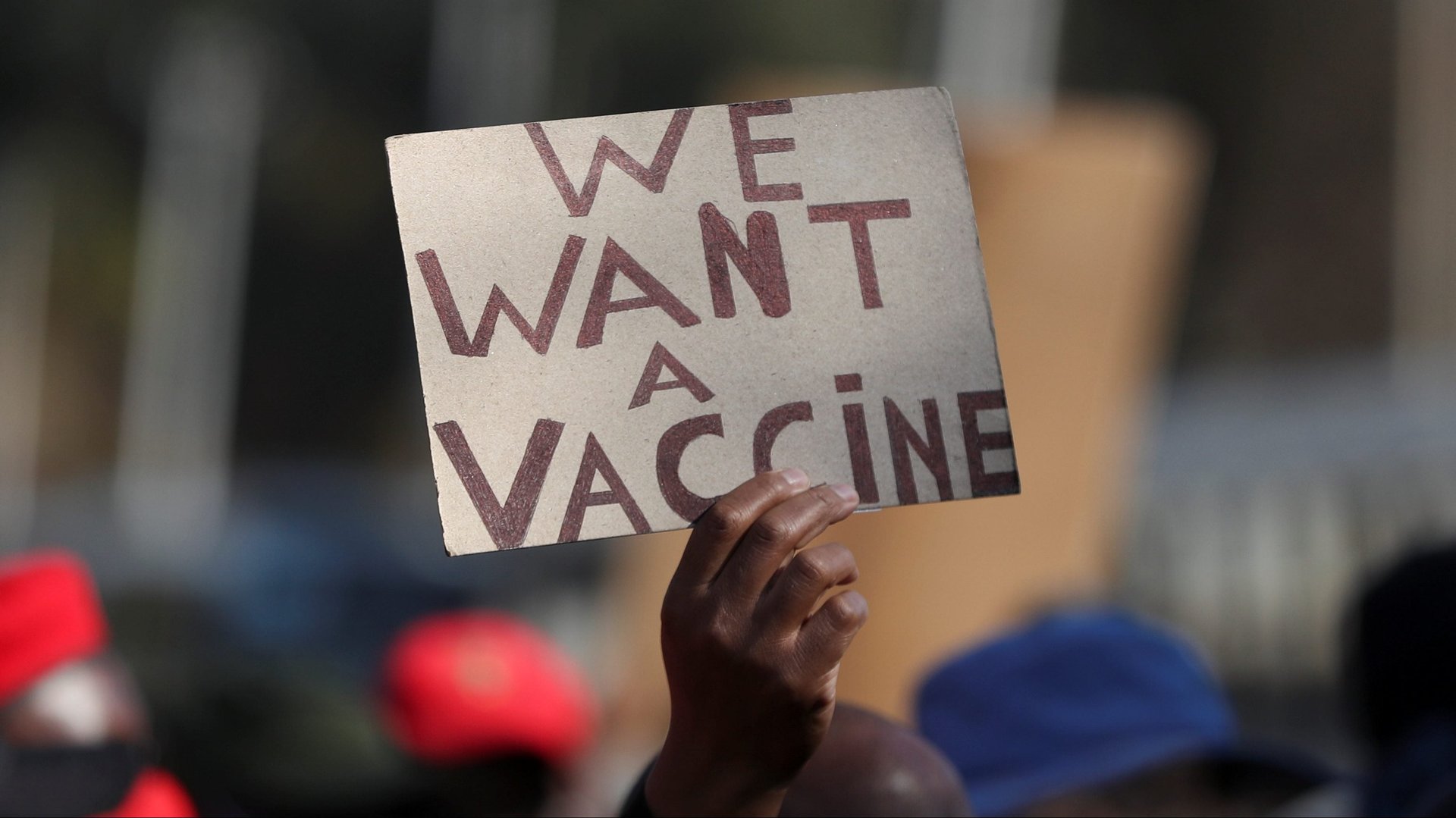Why the WHO doesn’t want you to get a booster shot
The head of the World Health Organization shamed rich countries in a press conference today (Aug. 4) for using a disproportionate share of available Covid-19 vaccines while leaving poorer countries in need.


The head of the World Health Organization shamed rich countries in a press conference today (Aug. 4) for using a disproportionate share of available Covid-19 vaccines while leaving poorer countries in need.
Tedros Adhanom Ghebreyesus also warned that campaigns to give out booster shots will deepen global inequalities in access to vaccines—setting up the WHO for a confrontation with countries like the US, UK, and Israel.
Which countries administer booster shots?
While vaccines provide a very high level of protection against serious cases of Covid-19, available data suggest that their effectiveness could diminish over time and from as early as six months after the second dose. Major pharmaceutical companies that produce the vaccines have said people could need to get them every year. Not all scientists agree, and there is no consensus on whether booster shots should be taken as an opportunity to mix vaccine types.
On Friday (July 30), Israel began giving out the first booster shots in the world, starting with 60-year-old president Isaac Herzog. Nearly 70% of people in Israel are vaccinated but after months of falling continuously, Covid-19 cases began to rise again in mid-June as a result of the more contagious delta variant.
Meanwhile, the UK will start administering booster shots to millions of vulnerable people in September. The priority group includes healthcare workers, adults over 70, and clinically extremely vulnerable adults. A later group that will get booster shots “as soon as practicable” includes the over-50s and adults who live with vulnerable people.
Germany and France will also offer booster shots to some vulnerable groups in September.
Why is the WHO opposed to booster shots?
The WHO is opposed to booster shots because it considers it more pressing to get the majority of people in poor countries vaccinated with their first two doses than to get people in rich countries an extra dose.
In a previous speech at the Olympics, Tedros warned that “the global failure to share vaccines, tests, and treatments…is fueling a two-track pandemic: the haves are opening up, while the have-nots are locking down. The longer this discrepancy persists, the longer the pandemic will drag on, and so will the social and economic turmoil it brings.”
Tedros said that people in “high- and upper-middle income countries” have taken more than 80% of the global Covid-19 vaccine doses to date, “even though they account for less than half of the world’s population.”
“I understand the concern of all governments to protect their people from the delta variant,” he added. “But we cannot accept countries that have already used most of the global supply of vaccines using even more of it, while the world’s most vulnerable people remain unprotected.” He called on rich countries to halt their booster shot campaigns “until at least the end of September, to enable at least 10% of the population of every country to be vaccinated.”